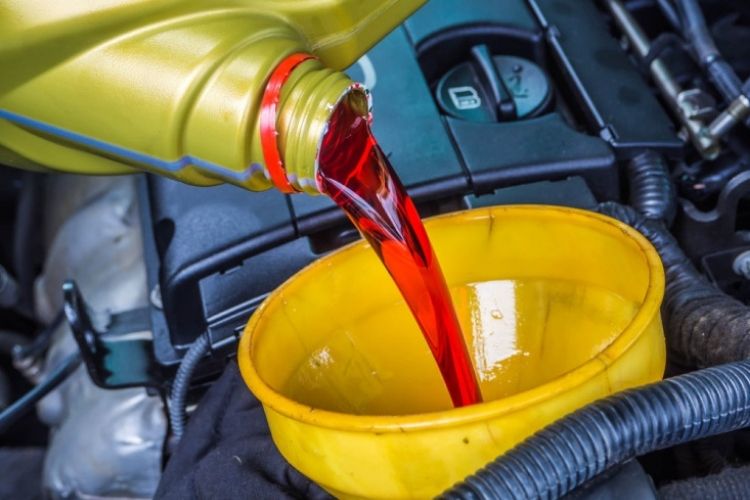Introduction
Automatic transmission fluid (ATF) is a critical component in ensuring the smooth operation and longevity of your vehicle's transmission system. Over time, ATF deteriorates and loses its effectiveness, necessitating periodic changes. In this article, we will delve into the factors that influence the cost of automatic transmission fluid change, helping you understand why it's important and how to manage this maintenance expense effectively.
Why Automatic Transmission Fluid Matters
Automatic transmission fluid serves multiple crucial functions in a vehicle's transmission system. It lubricates moving parts, prevents overheating, transmits power from the engine to the transmission, and helps maintain the hydraulic pressure necessary for gear shifting. Without proper ATF, the transmission can suffer from increased wear and tear, reduced efficiency, and ultimately, failure.
Signs That Your Transmission Fluid Needs Changing
Before delving into costs, it's essential to recognize when your vehicle's ATF needs changing. Common signs include:
- Discolored Fluid: ATF should typically be a bright red color. If it appears dark or brown, it may be contaminated and in need of replacement.
- Strange Odors: A burnt smell emanating from the transmission fluid can indicate overheating and degradation.
- Slipping Gears: If the transmission hesitates or shifts gears unpredictably, it could be due to insufficient or degraded ATF.
- Fluid Leaks: Puddles or spots of red fluid under your vehicle indicate a leak, which should be addressed promptly to prevent damage.
Factors Influencing the Cost of ATF Change
- Type of ATF: Different vehicles require specific types of ATF, which can vary in cost. High-performance or synthetic ATF tends to be more expensive than conventional fluids but offers enhanced performance and durability.
- Quantity Required: The amount of ATF needed depends on the vehicle's make and model, as well as the size of its transmission. Larger vehicles or those with more complex transmission systems may require more fluid.
- Labor Costs: The cost of labor for an ATF change can vary based on location, the mechanic's expertise, and whether you go to a dealership or an independent repair shop. Dealerships often charge higher labor rates but may specialize in your vehicle's brand.
- Additional Parts: In some cases, the ATF change may require replacing the transmission filter or gasket. These additional parts can add to the overall cost of the service.
- Condition of the Transmission: If the transmission has existing issues or damage, such as wear on internal components or leaks, addressing these alongside the ATF change may increase the total expense.
Average Costs and Price Range
The cost of an automatic transmission fluid change typically ranges from $100 to $300, depending on the factors mentioned above. Here's a breakdown:
- Fluid Cost: $20 to $50 per quart (may require 4 to 12 quarts depending on vehicle)
- Labor Cost: $80 to $150 per hour (average labor time is 1 to 2 hours)
- Additional Parts: $20 to $100 (if replacing filter or gasket)
Importance of Regular Maintenance
Regular maintenance of your vehicle's transmission system, including timely ATF changes, is crucial for several reasons:
- Prevent Costly Repairs: Neglecting ATF changes can lead to transmission damage, which is expensive to repair or replace.
- Extend Lifespan: Properly maintained ATF helps extend the lifespan of your transmission, saving you money in the long run.
- Maintain Performance: Fresh ATF ensures smooth gear shifts, optimal performance, and fuel efficiency.
DIY vs. Professional Service
While some car owners opt to perform ATF changes themselves to save on labor costs, it's essential to consider:
- Expertise and Tools: Properly changing ATF requires specific tools and knowledge of your vehicle's specifications.
- Warranty Considerations: Some vehicle warranties require ATF changes to be performed by certified professionals to remain valid.
Conclusion
Understanding the cost of automatic transmission fluid change cost involves recognizing the various factors that influence pricing, from the type of ATF used to labor costs and additional parts. By staying proactive with maintenance and addressing ATF changes promptly, you can ensure your vehicle's transmission operates smoothly and efficiently for years to come. Remember, periodic ATF changes are a small investment compared to the potential costs of transmission repairs or replacement due to neglect.
In summary, prioritizing regular ATF changes as part of your vehicle's maintenance regimen not only enhances performance but also safeguards your investment in your car's longevity and reliability on the road.





Comments